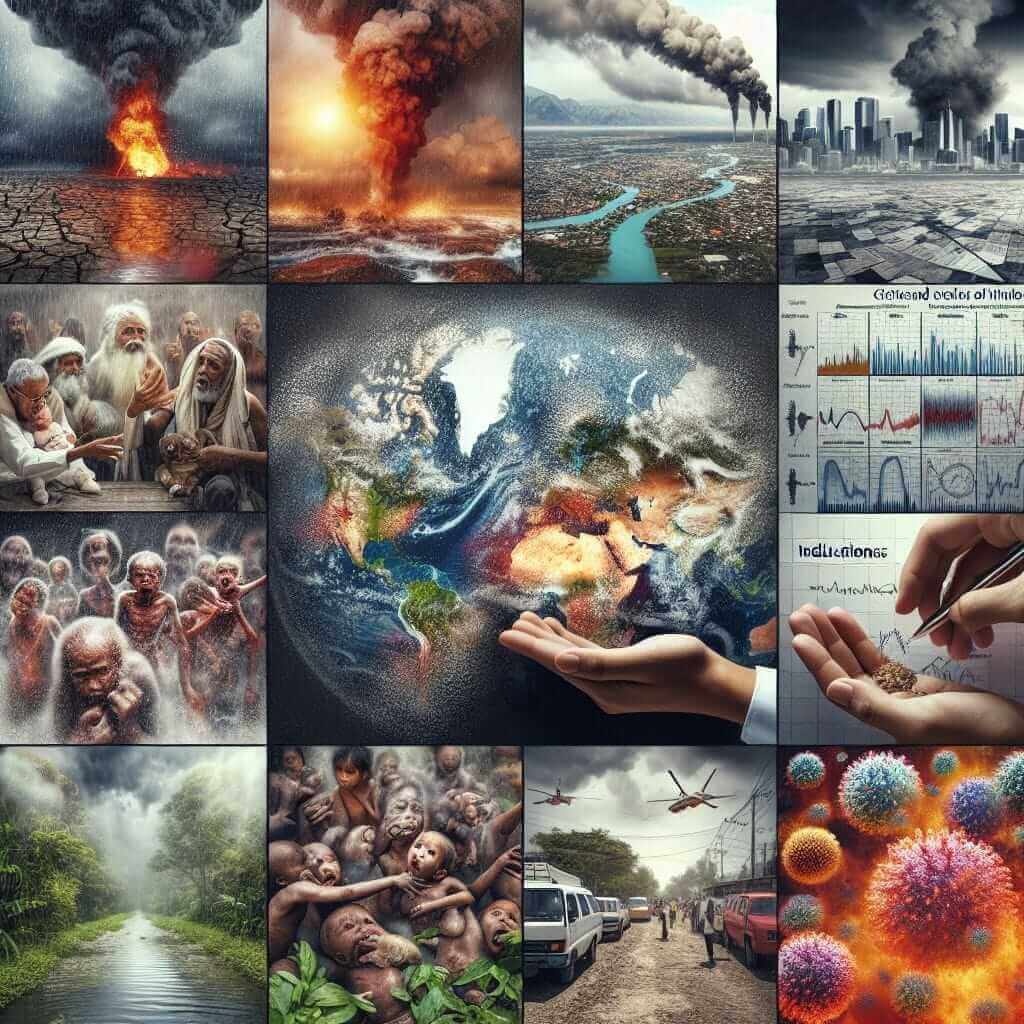The IELTS Reading section tests your ability to understand and interpret a variety of texts, spanning multiple topics. One topic that has gained significant traction in recent years is the impact of climate change on global public health. The frequency of this subject appearing in IELTS Reading exams reflects its global importance and timely relevance. This article will not only provide you with a detailed reading passage on this topic, but it will also guide you through answering questions effectively, highlight common mistakes, and offer invaluable vocabulary and grammar tips.
Reading Passage
Climate Change and Its Impact on Global Public Health
Climate change is increasingly recognized as the world’s greatest public health threat. Rising global temperatures, shifting weather patterns, and the increased frequency and intensity of extreme weather events are affecting the health of millions. This passage explores the various facets of this issue.
The most direct impact of climate change on health stems from extreme weather events like hurricanes, floods, and heatwaves. These events can lead to immediate fatalities and injuries. For instance, heatwaves can cause heatstroke and dehydration, particularly among vulnerable populations such as the elderly and children. Furthermore, floods can result in drowning and injuries from debris.
Indirectly, climate change can influence the spread of infectious diseases. Warmer temperatures can expand the habitats of vectors like mosquitoes, thereby increasing the transmission of diseases such as malaria and dengue fever. Additionally, prolonged warm seasons can extend the breeding periods for these vectors, compounding the public health risk.

Air quality is another vital aspect affected by climate change. Increasing temperatures and changing weather patterns can exacerbate air pollution, leading to respiratory issues such as asthma and chronic obstructive pulmonary disease (COPD). Higher levels of pollen and airborne allergens due to longer growing seasons also compound these health problems.
Food and water security are other critical issues tied to climate change. Altered weather patterns can disrupt agricultural practices, reducing food production and leading to malnutrition. Climate-induced changes in precipitation and melting ice caps threaten freshwater supplies, exacerbating water scarcity in many regions.
Public health infrastructure also faces challenges as a result of climate change. Increased strain on health services during extreme weather events can lead to resource shortages. Additionally, the socio-economic displacement caused by climate impacts can result in increased mental health issues, including anxiety and depression.
In conclusion, climate change poses a multifaceted risk to global public health, from direct impacts of extreme weather to the proliferation of infectious diseases and deteriorating air quality. Addressing these challenges requires global cooperation and a multifaceted approach combining mitigation efforts with adaptive strategies to protect vulnerable populations.
Questions
Multiple Choice
-
What is the most direct impact of climate change on public health according to the passage?
- A. Increased vector-borne diseases
- B. Air quality deterioration
- C. Extreme weather events
- D. Food and water insecurity
-
Which vulnerable populations are particularly affected by heatwaves?
- A. Children and adults
- B. Adults and the elderly
- C. The elderly and children
- D. Infants and adolescents
True/False/Not Given
-
Climate change has no impact on the spread of infectious diseases. (True/False/Not Given)
-
Longer growing seasons lead to decreased levels of pollen and allergens. (True/False/Not Given)
Summary Completion
Complete the summary below using words from the passage.
Rising global temperatures and changing weather patterns, resulting from climate change, have multiple impacts on public health. Extreme weather events like hurricanes and 5. __ can lead to immediate fatalities. Additionally, warmer temperatures can extend the habitats of vectors like mosquitoes, increasing diseases such as malaria. Air quality issues, exacerbated by longer 6. __ seasons, also contribute to respiratory problems.
Answer Keys
Multiple Choice
- C. Extreme weather events
- C. The elderly and children
True/False/Not Given
- False – The passage states that climate change can influence the spread of infectious diseases.
- False – The passage states that higher levels of pollen and airborne allergens due to longer growing seasons compound health problems.
Summary Completion
- floods
- growing
Common Mistakes
- Misinterpreting Question Types: Pay close attention to what the question is asking. For True/False/Not Given questions, determine if the statement can be verified, implied, or if there is no relevant information.
- Vocabulary Confusion: Misunderstanding key terminology can lead to wrong answers. This is why it’s crucial to expand your vocabulary base.
- Time Management: Spending too much time on difficult questions can result in insufficient time for easier ones. Practice time allocation.
Vocabulary
- Vector (noun) /ˈvɛktə/ – an organism, typically an insect, that transmits disease or parasite (e.g., mosquito).
- Proliferation (noun) /prəˌlɪfəˈreɪʃən/ – rapid increase in numbers.
- Mitigation (noun) /ˌmɪtɪˈɡeɪʃən/ – action of reducing the severity or seriousness of a problem.
- Adaptive (adjective) /əˈdæptɪv/ – able to adjust to new conditions.
Grammar Focus
Conditional Sentences
Conditional sentences express “if-then” scenarios and are important for discussing potential consequences of climate change.
Example:
- If global temperatures continue to rise, then the frequency of heatwaves will increase.
- Structure: If + present simple, + will + verb.
Conclusion
For a high score in the Reading section of the IELTS exam, it is crucial to practice regularly, expand your vocabulary, and learn to manage your time efficiently. You can refer to related articles like What are the consequences of climate change on public health? and How is climate change affecting global health initiatives? to deepen your understanding of the topic.
Effective practice, along with understanding the nuances of the questions, will put you in a strong position to achieve a high score in your IELTS Reading test. Best of luck!